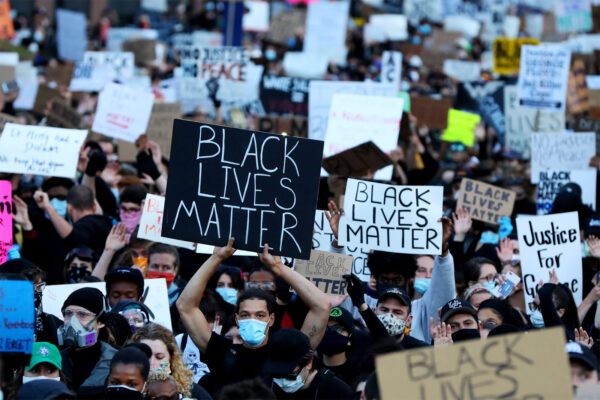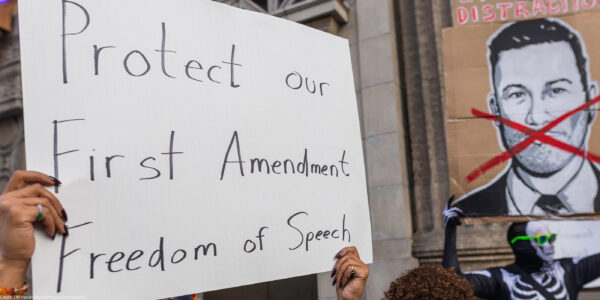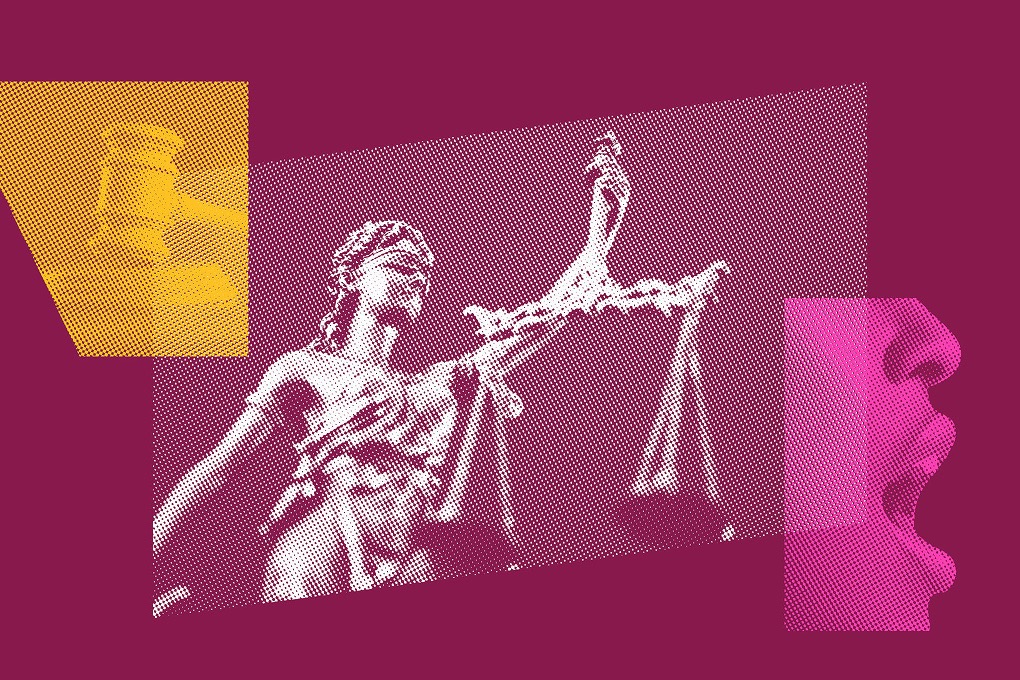In a Major Win for our Right to Protest, Federal Court Rules in Favor of Prominent Civil Rights Activist
The decision in Doe v. Mckesson affirms that the First Amendment protects protest leaders and organizers from being held liable for other people’s actions that they did not direct or intend
WASHINGTON — In a crucial win for the First Amendment right to protest, the U.S. District Court for the Middle District of Louisiana ruled in favor of DeRay Mckesson, a prominent civil rights activist and Black Lives Matter movement organizer. The court held that a protest leader cannot be held legally responsible for injuries inflicted by another person’s violent act at the protest, when it is undisputed that the leader didn’t intend for that violence to occur. Though the Fifth Circuit had appeared to accept that theory in an earlier decision in this case, the district court held that, in light of more recent Supreme Court caselaw, negligence can never suffice to hold a person exercising their First Amendment freedoms at a protest liable; intent is required.
“The goal of this lawsuit was to prevent people from showing up at a protest out of the fear that they might be held responsible if anything happens, which makes this decision a win not only for me, but for all protest leaders and organizers across the country who are going to continue to show up and speak out. It’s heartening to know that the Constitution still protects our right to protest,” said Mckesson. “This has been a grueling eight-year process, and now that it is behind me, I can continue to channel all of my energy into the day-to-day work of envisioning a world beyond policing.”
The ruling comes after the Supreme Court declined to hear Doe v. Mckesson in April 2024, sending it back to the district court. Despite the Court’s denial of the cert petition, Justice Sonia Sotomayor wrote a statement emphasizing the Court’s 2023 decision in Counterman v. Colorado, which held that negligence can never be the proper standard when it comes to political speech and that intent is necessary for incitement, should govern “any future proceedings in this case.” The district court agreed.
“The Supreme Court has long recognized that peaceful protesters cannot be held liable for the unintended, unlawful actions of others, and we’re delighted to see that the district court came to the same conclusion,” said David Cole, legal director of the American Civil Liberties Union.
The district court additionally found that, even if the “negligent protest leader” theory was constitutional, the officer plaintiff in this case failed to prove the necessary facts. The opinion makes clear that simply alleging “negligent protest” on the part of a supposed leader does not suffice to win a case.
The person who brought the lawsuit had sought damages from Mckesson for injuries the officer sustained at a protest by an unknown third party in Baton Rouge, Louisiana, on July 9, 2016. The protest was held to celebrate the life of Alton Sterling — a Black resident who was shot and killed by two on-duty police officers — and demand accountability and transformative change.
“Cases like this are used as a scare tactic, to stop communities from organizing with a fear of being held accountable for any and all actions that take place,” said Billy Gibbens, attorney with Schonekas, Evans, McGoey & McEachin. “We are thrilled that this ruling protected the rights of DeRay Mckesson, and all organizers and protest leaders.”
Mckesson is represented by David Goldberg, counsel of record on Mckesson’s legal team and attorney with Donahue, Goldberg & Herzog; the American Civil Liberties Union; the American Civil Liberties Union of Louisiana; and Billy Gibbens and Ian Atkinson, trial counsel and attorneys with Schonekas, Evans, McGoey & McEachin, LLC.
“This win is not just important here in Louisiana, but across the nation,” said David Goldberg, attorney with Donahue & Goldberg. “It ensures the fundamental right to protest that this country was built upon, stands strong.”



